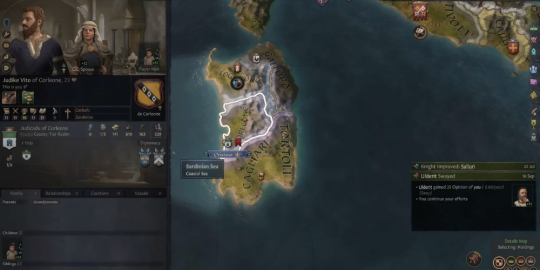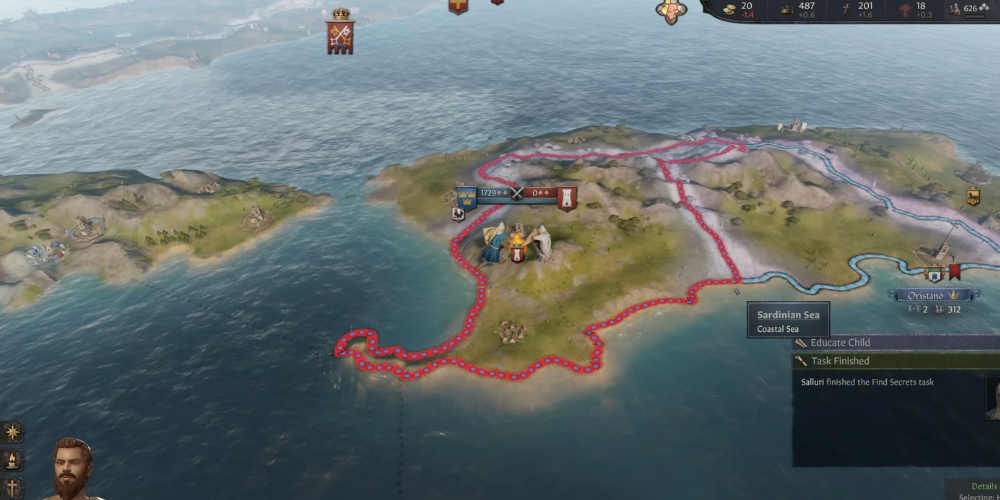
The grand game of medieval politics and warfare is beautifully represented in the critically acclaimed "Crusader Kings III." Players are drawn into a complex, multi-layered world where strategy, diplomacy, and deception are your primary tools, and success is measured through the flowering of your dynasty. This article delves into the strategic play of Crusader Kings III, aiming to give the reader a solid foundation in understanding the game's intricacies and how to make substantial progress.
Understanding Character Traits
In Crusader Kings III, your character's traits play a significant role. Traits affect a character's stats, their opinion of other characters, the likelihood of certain events occurring, and even other characters' opinions of them. Understanding these traits and how to utilize them best is one of the first steps to mastering the game's strategic layer.
Diplomatic Navigation
One of the defining features of Crusader Kings III is its complex diplomatic system. It's not just about maintaining good relations with your neighbors, although that’s certainly an important aspect. Diplomacy in this game involves managing relationships with your vassals to prevent uprisings, engaging in marriage politics to secure alliances, using your spymaster to uncover secrets you can use as leverage and much more. Proper navigation of these intricacies is essential to keeping your kingdom peaceful and prosperous.
Intrigue and Schemes
If diplomacy represents the overt part of Medieval politics, then intrigue and schemes are the covert side. Creating secret alliances, plotting assassinations, and sowing discord are all part and parcel of a successful campaign in Crusader Kings III. New players often overlook this aspect of the game, but mastering it can significantly change a player's experience.
Vassal Management
No ruler rules alone, and this is especially true in Crusader Kings III. More than warriors on a battlefield, your vassals can make or break your reign. Managing the happiness, loyalty, and effectiveness of these individuals is crucial. Keeping them pleased ensures they contribute their troops and tax income; keeping them loyal ensures they don’t rise in rebellion or plot against you.
Marriages and Alliances
The saying "Love is a battlefield" takes on a new meaning in Crusader Kings III. Marriages aren't just about producing heirs - they're also crucial for cementing alliances, claiming titles, and avoiding war. Choosing the right marriage partners for you, your offspring, and your other family members can have far-reaching consequences for your game and should always be part of your strategic planning.
Warfare and Conquest: The Heartbeat of Medieval Politics

Not every dispute or political strife in Crusader Kings III can be solved through soft power alone. At times, when dialogue breaks down or an unexpected window of opportunity arises, the course of action shifts towards aggression. At this juncture, the sound of war drums and battle lines are drawn. Understanding the nuances of going to war and the strategies of battlefield conquest is, thus, paramount.
ёCrusader Kings III is designed meticulously with a multi-faceted combat system that considers multiple variables during warfare. The first among these are the different troop types. These diverse forces consist of varying units, each with unique stats like levies, knightly retinues, special units, or mercenaries, to name a few. Each of these units has its advantages, disadvantages, and optimal situations for deployment. Knowing when to mobilize and use them boosts your chances of victory vastly.
Furthermore, the combatants' consideration further deepens the combat experience. Who your character goes to war against makes all the difference. The power balance, their alliances, the loyalty of their vassals - all these factors and more have a say in complementing or diminishing your efforts in warfare.
Not to forget, the geographical advantages of the battlefield play a crucial role. Is it a wide-open field, a tightly packed city, a rugged mountain pass, or a dense forest? Fighting in each of these terrains presents certain advantages and disadvantages. You could be invading, defending, or embroiled in civil war, but knowing how to capitalize on the terrain can give you a critical edge in battle.

And lastly, a significant distinguishing aspect of this game lies in 'commander traits.' These traits are attributes assigned to the character leading your armies, greatly impacting how efficient your troops prove to be. Choosing the right commander can often be the deciding factor between glorious victory or devastating defeat.
Winning a battle, thus, in Crusader Kings III, is more than just outnumbering your enemies or outgunning them. It requires a nuanced understanding of when and how to judiciously use your military resources. The degree of your subtlety and discretion in this regard will eventually determine whether you emerge as a triumphant conqueror or serve merely as a cautionary tale for others.
Technology and Innovations
It may be tempting to overlook technology in a game focused heavily on personality politics and warfare, but doing so would be a mistake. Whether it's better farming practices that boost your economy or new military strategies capable of turning the tide of battle, letting your kingdom fall behind in technological advancement can lead to its downfall. Marshaling your resources to lead your nation to the forefront of the known world is always a strategic move.
In conclusion, it's clear to see the importance of deliberate, strategic planning in Crusader Kings III. It is an intricate and layered game that rewards understanding, patience, and creativity. Through a careful understanding of character traits, diplomatic maneuvering, and strategic warfare, players can take their game from a simple dynasty to empire builders of note. Whether you’re a seasoned veteran or a new player about to dip your toes into the Middle Ages, keeping these strategies in mind can help you reach the top.
